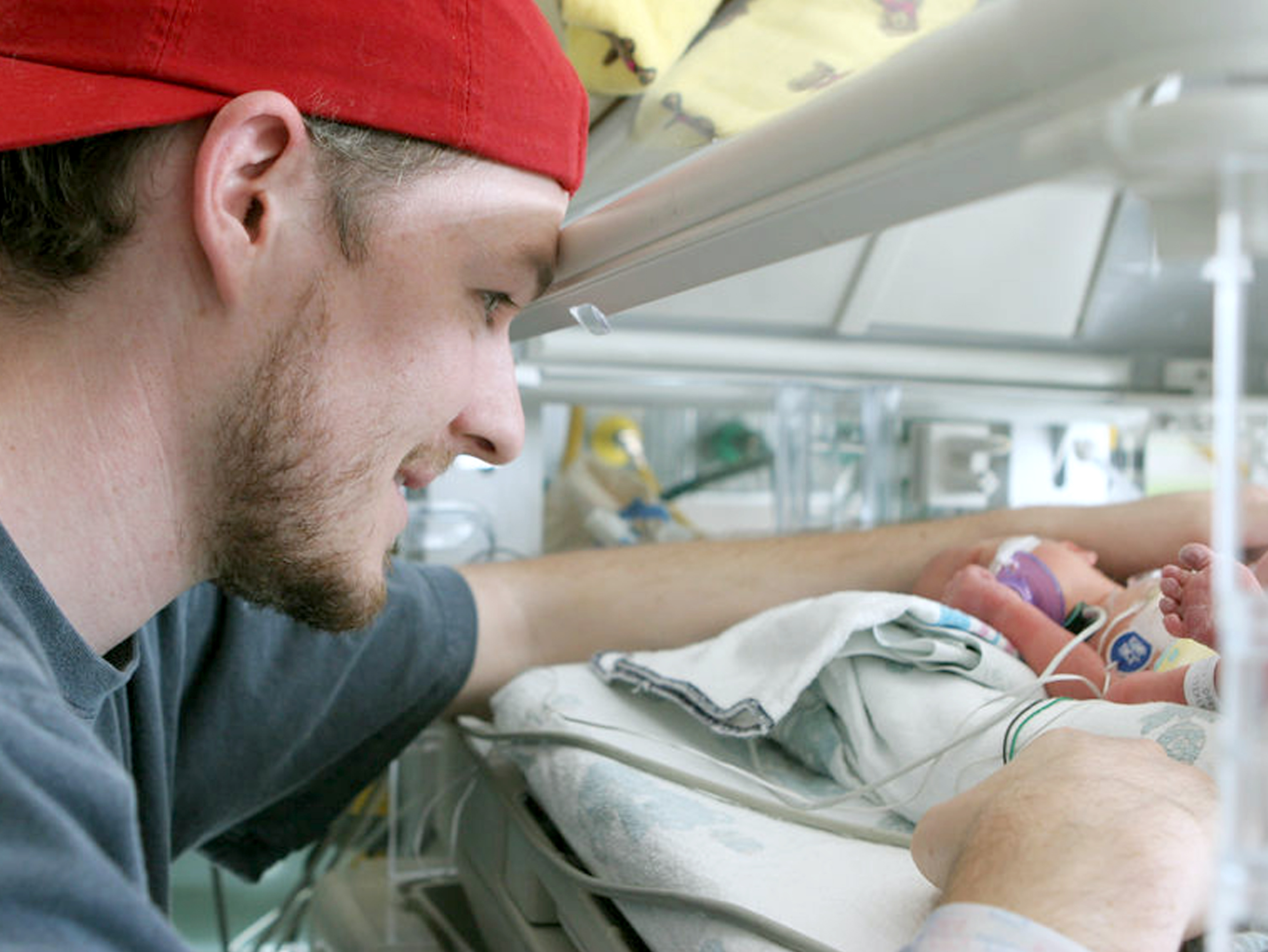How and what a premature baby is fed depends on their gestational age and medical condition.
The goal of feeding a premature baby is to approximate the growth and weight gain that the baby would have experienced in the third trimester of pregnancy. In general, premature babies should increase their length by 1 cm per week, their head circumference by 0.7 cm per week and gain an average of 15 g per day in overall weight. Premature babies are measured and weighed to assess how much they are growing.
Parents can participate in feeding their baby no matter which method is used. Many neonatal intensive care units (NICUs) will encourage parents to help with feeding since it promotes bonding and indeed the baby’s health. A growing premature baby is usually a baby who is thriving and getting stronger and healthier day by day.
There are three ways to feed premature babies: intravenously, through a feeding tube, and directly by mouth. They may receive three different kinds of nutrition: total parenteral nutrition (TPN), breast milk, and infant formula designed for premature babies.
Intravenous feeding and total parenteral nutrition (TPN)
Although even the most premature digestive system is capable of accepting and digesting milk, sometimes the baby may be too unwell to be fed this way. In such cases, premature babies are fed in a way that bypasses the digestive system and delivers nutrition directly to the baby’s bloodstream through an intravenous line (IV) or a catheter.
Through this IV, a premature baby can be given a solution called total parenteral nutrition (TPN). TPN is made up of proteins (amino acids), vitamins, minerals, sugar (dextrose), fat (lipids) and water. This type of feeding may go on for days or weeks depending on the maturity of the baby and their ability to feed in an alternative way. Even when the baby is being fed intravenously, small amounts of breast milk may be given at intervals through a feeding tube to stimulate the functioning of the GI tract, essentially priming the baby’s digestive system for the future.
Tube feeding
Because babies younger than a gestational age of 34 weeks do not usually have the coordination to suck and swallow, they are fed by some means other than the breast. Depending on the condition of the baby, tube feedings often start in the first few days of life and usually begin slowly. Once the premature baby is stable enough to receive feeding through the GI tract, they can be fed via a nasogastric (NG) tube. A small tube is inserted through the nose or mouth and run directly into the baby’s stomach. Small amounts of fortified expressed breast milk or premature infant formula are then gently allowed to flow into the stomach. If the baby handles these feedings, they are fed progressively larger quantities.
As soon as a baby has developed the coordination necessary for breastfeeding, they will be encouraged to do so.
Breastfeeding and bottle feeding
Once the baby has developed the coordination to begin sucking and swallowing, the health-care team will help parents establish breastfeeding. It is encouraged to begin pumping milk right after the baby’s birth to increase milk production. Some babies are also introduced to bottle feeding. For babies who are not being fed breast milk, there are special baby formulas for premature infants that have added protein, minerals, vitamins and calories to meet their nutritional needs.
Additional vitamins and iron supplementation
Breast milk provides all the vitamins and minerals a full-term baby needs, except for vitamin D. All breastfed babies need additional vitamin D. Premature babies may require more nutritional supplements to either breast milk or formula than do full-term babies. This is often given by fortifying breast milk or by using a formula specially designed for the nutritional needs of premature babies. Generally, these supplements include iron and certain vitamins.
